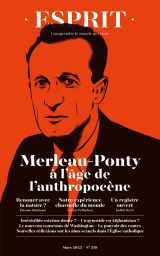is a research professor (directeur d’études) and the holder of the History and Theory of Cosmopolitanisms chair at the School for Advanced Studies in Social Sciences (Ecole des Hautes Etudes en Sciences Sociales) in Paris. His publications include: Solitude volontaire (Paris, Albin Michel, 2017); Un monde étrange. Pour une autre approche du cosmopolitisme (Paris, PUF, 2015); the co-edited Faire des sciences sociales, Paris, EHESS Press, 2012 (3 vols.); War and Peace. The Role of Science and Art (Berlin-New York, Duncker & Humblot, 2010), with Soraya Nour; Civilisations. Retour sur les mots et les idées (RdS, Paris, Springer, 2008), with Chryssanthi Avlami; L’épreuve de la nouveauté (Laboratoire italien, Lyon, ENS-LSH Press, 2005), with Marie Gaille-Nikodimov & Pierre Girard; Les Archives de l’humanité. Essai sur la philosophie de Vico (Paris, Seuil, 2004); Recherches sur la pensée de Vico (Paris, Ellipses, 2002), with Pierre Girard; the co-edited La Boétie. Le Discours sur la servitude volontaire (Paris, Vrin, 2002); and Michelet. La Magistrature de l’histoire (Paris, Michalon, 1998). His research has also been recognised by the Alexander-von-Humboldt Foundation.

